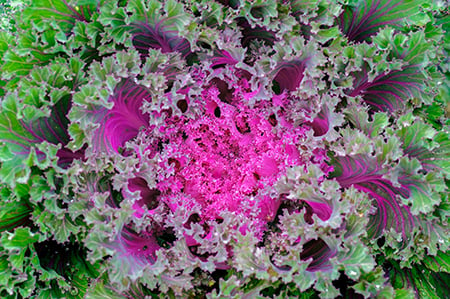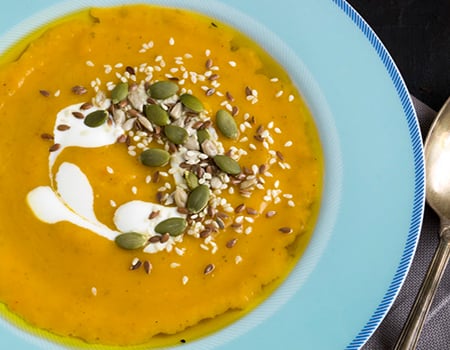Daily Consumption Of Popcorn: Healthy Or Unhealthy?
Popcorn, enjoyed for its crisp texture and appealing looks, is one of the most famous snacks in the world — but is it healthy?
Popcorn, enjoyed for its crisp texture and appealing looks, is one of the most famous snacks in the world. With its ample dietary fiber and low-calorie intake, it is often seen as a healthy alternative to processed snacks. However, determining whether daily popcorn consumption is beneficial or detrimental requires a thorough understanding of its nutrients, health benefits, and associated risks.
Standing out as a whole grain, popcorn retains all parts of the kernel, including the bran, germ, and endosperm. Offering vital nutrients, such as fiber, vitamins, minerals, and antioxidants, it is highly suggested as a healthy snack for a balanced diet. A typical serving of air-popped popcorn (one-ounce bag) is about 2.5 cups. The following are the nutritional components of this famous snack.
Low Calories
With about 110 calories per serving, popcorn is the best snack for calorie-conscious people, however its calorie content varies depending on how it’s made. Air-popped popcorn, without oil, butter, or salt has the fewest calories, whereas, popcorn popped in oil has about 164 calories and 9 grams of fat per serving. Adding butter ups the calories by 100 and fat by 11 grams for each tablespoon of butter.
Despite its low-calorie count, popcorn is full of antioxidants, the compounds that save human cells from damage. They are great for heart, gut, and other health issues, but beware — popcorn loaded with fat, salt, and sugar is unhealthy. For a low-calorie snack, stick to air-popped corn without any extras.
High Dietary Fiber And Protein
Packed with dietary fiber, popcorn is a delicious treat for all age groups. A one-ounce air-popped serving has 4 grams of fiber. The fiber adds bulk to your stool and ensures you don’t get constipated. Note the fiber in popcorn is insoluble, also helping you in weight loss, however the way you make popcorn can also change its fiber content. Air-popping is best to retain natural fiber.
Popcorn, a whole grain snack, gives you 3.5 grams of protein per one-ounce air-popped serving. This protein content makes popcorn a fulfilling and healthy snack. Since the protein in popcorn is plant-based, this makes it a suitable option for vegetarians and vegans who want to boost their protein intake. Together protein and fiber help you feel full, which is vital to control hunger and overeating. Thus, popcorn is a smart pick if you want to lose weight and eat healthy.
Loaded With Micronutrients
Rich in vitamins and minerals, one-ounce of air-popped popcorn provides vital B vitamins, like thiamin, niacin, folates and pyridoxine. It is also rich in magnesium, with a one-ounce serving providing 10% of the RDA for this mineral essential to over 300 biochemical reactions in the body such as muscle and nerve function, controlling blood pressure and glucose levels. Consider how often you easily eat more than 2.5 cups of popcorn at a sitting and imagine all the magnesium you are supplying to your body’s essential needs!
Popcorn is also loaded with zinc (10% RDA), helping to boost immune function, wound healing, DNA synthesis, and cell division. A one-ounce serving alos provides copper (10% RDA) and manganese (15% RDA), that form connective tissue, absorb iron, and make energy inside cells, as well as iron (6% RDA), and phosphorus (10% RDA), which is vital for strong bones and teeth, and helps the body make ATP, its energy source.
Despite its nutritional perks, daily popcorn eating has many drawbacks and health considerations.
Microwave Popcorn Health Risks
Microwave popcorn has oils, salts, and artificial flavors that can boost calorie and sodium intake. These additives can cause many health issues, like high blood pressure and heart diseases. PFOAs and other chemicals used in microwave popcorn bags have raised concerns about cancer and liver damage. Daily microwave popcorn consumption can expose you to these chemicals, and potentially lead to long-term health risks. Be mindful of these factors if adding microwave popcorn to your diet.
Toppings And Portion Control
Adding butter, caramel, and salt to popcorn can turn it into an unhealthy snack, especially with daily consumption. These toppings raise calorie, fat, and sodium content, which can lead to weight gain, high blood pressure, and other health issues. If you find yourself unsatisfied with less than 10 cups of popcorn, either with or without toppings, consider adding a more filling snack alongside the popcorn to prevent overconsumption.
Dental Issues
Popcorn kernels can be lodged between teeth, attracting bacteria and producing acids that harm tooth enamel and irritate gums. Over time, this can result in gum diseases and tooth cavities. Regular flossing and brushing after eating popcorn are necessary to prevent these health issues, and well as drinking plenty of water. In addition, mindful, slow chewing when eating popcorn can help prevent cracking a tooth on an unpopped kernel.
Intestinal Health Issues
Besides being good for digestion, high-fiber food like popcorn can cause bloating, cramps, and gas, particularly in people who are not accustomed to a fiber-rich diet. The hulls of popcorn kernels may also irritate the digestive tract, becoming lodged in the intestines. and creating inflammation and various health conditions. To prevent intestinal issues, chew popcorn thoroughly and drink plenty of water along with it.
Avoid The Risks And Enjoy The Benefits
- CHOOSE HEALTHY PREPARATION METHODS. To consume fewer calories and more nutrients, choose air-popped popcorn made without oils and salts. You can either eat it in its natural form or add some healthy toppings to it, such as yeast, herbs, spices and other flavors to boost taste while preserving health benefits. This simple snack is not only delicious but easy to prepare as well.
- TOPPINGS. Turmeric, known for its anti-inflammatory benefits, can add a special taste and a golden hue to the snack. Paprika offers a sweet and smoky flavor. Cinnamon makes popcorn sweet without adding sugar. Nutritional yeast, a healthy topping for popcorn rich in B12, offers a cheesy flavor without using dairy, an option for lactose-intolerant people or those on a vegan diet.
- EAT IN MODERATION. Popcorn can be healthy when consumed in moderation. Enjoy it as a part of a balanced diet rather than relying on it as a primary snack. While eating popcorn, one must be mindful of portion sizes. Stick to the standard serving size of air-popped popcorn, which is about 3 cups. Pairing it with fruits, vegetables, proteins, and other whole grains will promote overall health.
- COOK AT HOME. Making popcorn at home, preferably with organic kernels and healthy preparation methods and moderate daily consumption, makes it an excellent healthy snack to enjoy anytime. Make it a party with fun styles of popcorn boxes! With high levels of fiber, vitamins, minerals, texture and taste, popcorn is nature’s perfect snack food.
Howard Ritik is a health and wellness writer focusing on food and nutrition, who enjoys baking, comparison shopping and the love of 3 finicky felines.











